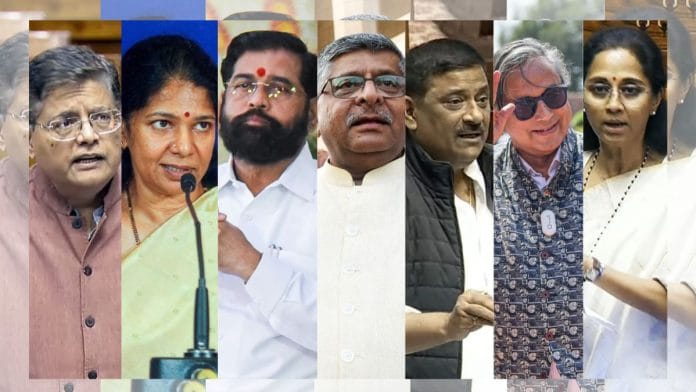Seven delegations of Members of Parliament, three of them led by opposition leaders, have begun diplomatic outreach to rally international support for India’s war against Pakistan-sponsored terrorism. This urgency on the part of the government to put together seven teams and brief them on the agenda of global outreach is both understandable and laudable. The 51-member teams will visit 32 countries and the European Union, including four of the five permanent UN Security Council members—all except China.
Beijing’s geopolitical manoeuvres involve supporting Islamabad, destabilising Bangladesh to the detriment of India, and strengthening its strategic positions in the Indian Ocean Region so as to thwart Indo-Pacific initiatives like the Quad, which it derides as “Asian NATO.” Given this clear China-Pakistan nexus, it becomes all the more necessary for New Delhi to expose Islamabad’s role in cross-border terrorism and Beijing’s complicity in shielding it.
Before departing, the MPs were briefed by Foreign Secretary Vikram Misri, who underscored that India’s response to terrorism has the support of the entire political spectrum. The key message that the MPs are expected to convey is that “India stands united against terrorism.” The delegations will highlight Pakistan’s use of terror camps, especially their role in the heinous terror attack on tourists in Pahalgam, prompting India to initiate punitive steps and eliminate terror infrastructure in Pakistan-occupied Kashmir.
It is no longer a secret that the Pakistani military and the non-state actors supported by it had to be hit where it hurts. While the extent of the punitive actions has not been made public, the Indian government has neither confirmed nor denied reports of strikes on the nuclear facilities in Pakistan. Maintaining ambiguity not only suits the Narendra Modi government, but it is also in national interest. This is part of a calibrated strategy, which will be supported by the MPs underlining the culpability of the Pakistan Army and its political establishment in enabling non-state actors.
Explain India’s IWT stance
Immediately after the Pahalgam terror attack, the government suspended the 64-year-old Indus Waters Treaty (IWT), which anyway needed massive modifications considering the archaic and discriminating nature of the agreement that was highly skewed in Pakistan’s favour. Such bilateral treaties presume a reasonable amount of ‘good-neighbourliness’. But Pakistan has repeatedly put hurdles on even genuine and legally permissible water storage projects like dams on the Indian side of the rivers, leading to energy shortage, impact on arability, and revenue loss. The MPs’ delegations will appraise the host countries about the legal and strategic compulsions behind India’s decision to keep the IWT in abeyance, countering Pakistan’s claim that it constitutes an “act of war.”
At the United Nations Security Council (UNSC), Pakistan will surely make anti-India remarks, move resolutions condemning India’s “water war,” and present itself as a victim of India’s actions. India is particularly concerned about Slovenia, a temporary UNSC member known for its highly sensitive stance on water as a human right. In 2016, it floated a resolution to declare availability of potable water as a globally accepted fundamental right, enlisting the support of nearly 150 countries. Slovenia will convene an Arria-formula meeting on 23 May at the UN titled “Protecting Water in Armed Conflict.”
Indian diplomats have already sensitised Ljubljana to the fact that India’s decision is a strategic necessity—a message the MPs will reinforce by echoing Prime Minister Modi’s warning: “Blood and water cannot flow together.” The world needs to be informed about the need for drastic action on IWT so as to bring Pakistan to the negotiating table.
A section of India’s Left parties has objected to suspending the IWT, saying it is against humanitarian principles to deny water. In this context, it becomes all the more important for the government to present a clear and united political stance—minus the communists—to the international community.
While IWT is one of the issues, India has also pushed back against claims—and subsequent denials—by Trump administration that it helped broker a ceasefire. Such a thing is not possible as mediation clearly goes against India’s principle of strategic autonomy. Several opposition leaders, including Congress’ Salman Khurshid, have supported the government’s stance that there is a ‘pause’ in military action against Pakistan and that it is a unilateral decision.
Past precedents of bipartisanship
This is not the first time India has sent multi-party delegations overseas to defend its national interests. In 1994, the Narasimha Rao-led Congress government dispatched a team headed by opposition leader Atal Bihari Vajpayee to Geneva, where a Pakistan-sponsored UNHRC resolution that sought to censure India on its record of human rights in Jammu and Kashmir was successfully defeated. The delegation included leaders like Farooq Abdullah and Salman Khurshid.
In 2009, under Prime Minister Manmohan Singh, a similar multi-party delegation was sent abroad to provide evidence of Islamabad’s involvement in the 26/11 Mumbai terror attacks.
Even during the 1965 war, Vajpayee, then with the Bharatiya Jana Sangh (BJS), urged people at a rally in Lucknow to ‘fight the enemy on all fronts”. “Pakistan is at present under the hand of mad dictators who have landed their country in great peril,” he said, and called upon parties to set aside differences and rally behind the Congress, which “was the biggest organisation fighting for the greatest ideals at the moment.”
The show of solidarity abroad, with MPs across party lines speaking in one voice, should reflect within India too.
Seshadri Chari is the former editor of ‘Organiser’. He tweets @seshadrichari. Views are personal.
(Edited by Prashant)






